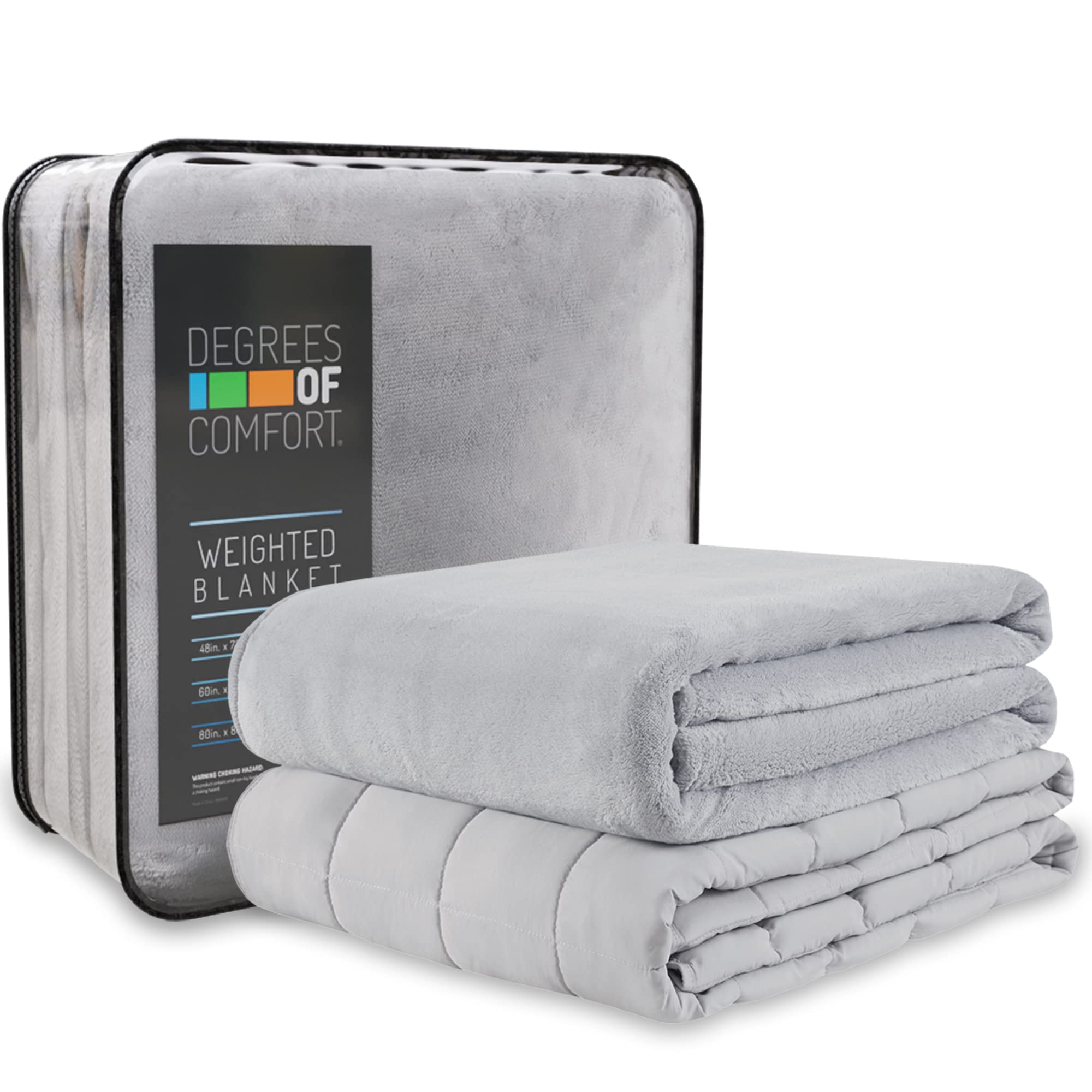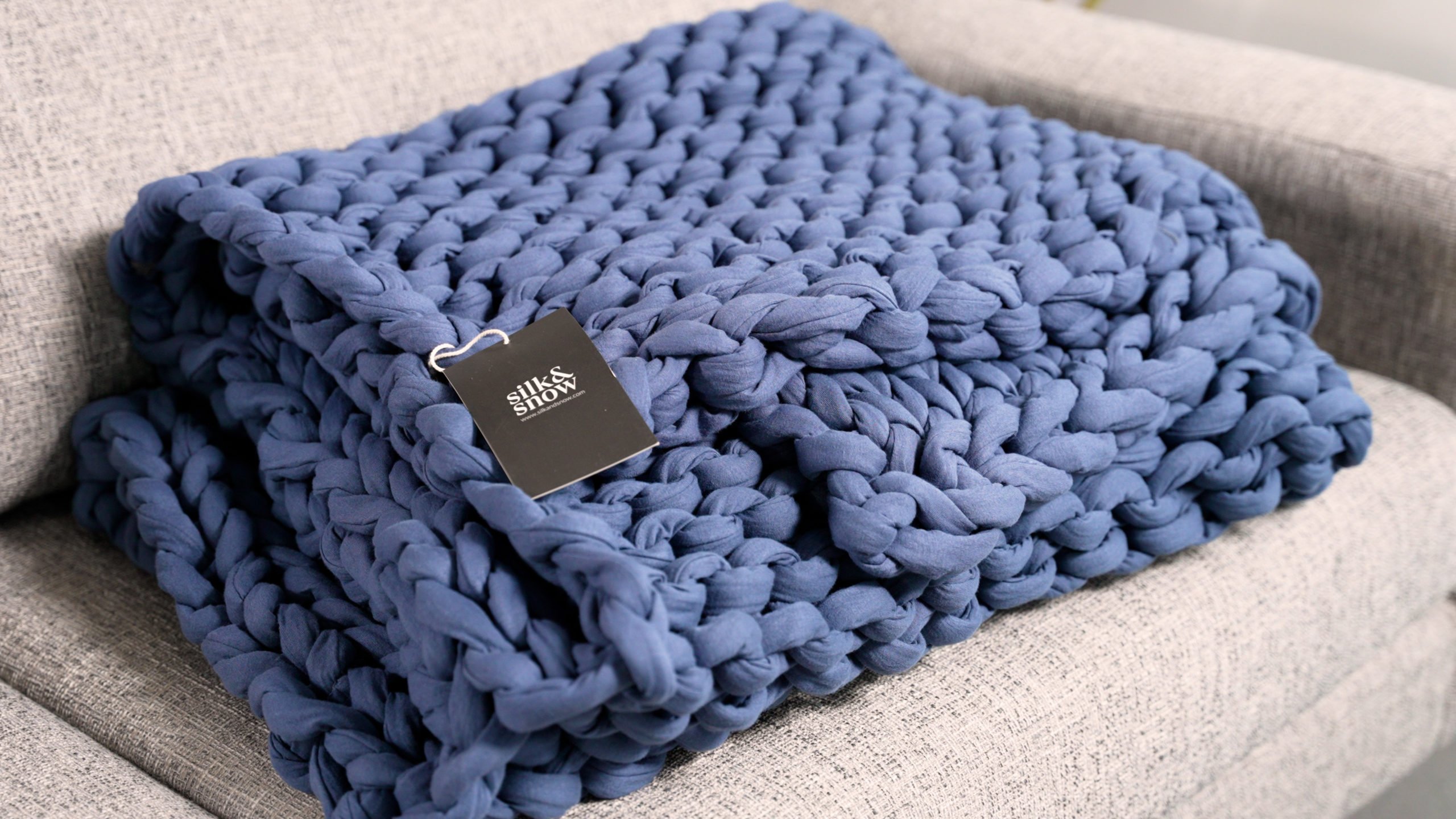Introduction
Weighted blankets have gained popularity for their potential therapeutic benefits, offering a cocoon-like embrace that may promote relaxation and improve sleep quality. However, like any therapeutic tool, they come with both advantages and considerations. Let’s explore the pros and cons in detail to help you decide if a weighted blanket is right for you.

Pros of Weighted Blankets:
- Promotes Relaxation and Calmness:
- Weighted blankets are designed to provide deep pressure stimulation, which can help calm the nervous system and reduce anxiety levels. This pressure mimics the feeling of being hugged or held, promoting feelings of security and relaxation.
- Improves Sleep Quality:
- Many users report that using a weighted blanket helps them fall asleep faster and stay asleep longer. The gentle, even pressure can encourage the production of serotonin and melatonin, hormones that regulate sleep.
- May Help with Insomnia:
- Individuals struggling with insomnia or sleep disorders may find relief with a weighted blanket. The comforting pressure can alleviate restlessness and promote a sense of comfort conducive to sleep.
- Supports Sensory Processing Disorders:
- Weighted blankets are commonly used in therapy for individuals with sensory processing disorders, autism spectrum disorder (ASD), ADHD, and similar conditions. The calming effect of deep pressure stimulation can help regulate sensory processing and improve focus.
- Natural Stress Reliever:
- The deep pressure provided by weighted blankets has been shown to reduce levels of cortisol, the stress hormone. This can contribute to overall stress reduction and a sense of well-being.
- Non-Pharmacological Therapy Option:
- Unlike medications, weighted blankets offer a drug-free approach to managing anxiety, stress, and sleep issues. Many people appreciate this natural alternative.
- Enhances Comfort and Rest:
- Beyond therapeutic benefits, many users simply find weighted blankets comfortable and soothing. They can provide a sense of coziness and security, especially during periods of heightened stress or discomfort.

- Beyond therapeutic benefits, many users simply find weighted blankets comfortable and soothing. They can provide a sense of coziness and security, especially during periods of heightened stress or discomfort.
Cons of Weighted Blankets:
- Heavy and Restrictive:
- The weight of a blanket can range from 5 to 30 pounds or more, which some users may find too heavy or restrictive, especially if they have mobility issues or difficulty adjusting to pressure.
- Heat Retention:
- Weighted blankets can trap heat due to their dense materials and multiple layers. This can be uncomfortable for some users, especially during warmer months or in climates with higher temperatures.
- Size and Weight Considerations:
- Choosing the right size and weight can be challenging. A blanket that is too heavy or too light may not provide the desired therapeutic effect or could be uncomfortable to use.
- Not Suitable for Everyone:
- Weighted blankets are generally not recommended for infants under one year old or for individuals who cannot remove the blanket independently. Additionally, people with certain medical conditions, such as respiratory issues or circulatory problems, should consult a healthcare professional before using one.
- Initial Adjustment Period:
- Some individuals may need time to adjust to the sensation of a weighted blanket. It may feel unfamiliar or overly confining initially, requiring a gradual acclimatization period.
- Cost and Maintenance:
- Quality weighted blankets can be expensive due to their specialized construction and materials. Additionally, they may require special care instructions, such as spot cleaning or specific washing methods, which can add to the overall cost and maintenance effort.
- Weight Distribution Issues:
- Depending on the design and quality of the blanket, the weight distribution may not be evenly distributed over time. This could affect the effectiveness and comfort of the blanket.

Pros: The Soothing Side of Weighted Blankets
**1. Deep Touch Pressure (DTP) Simulation: The core benefit of weighted blankets lies in their Mimic deep compression(Deep Touch Pressure)Effect, which can stimulate the release of serotonin, a neurotransmitter associated with feelings of happiness and well-being. This gentle, even pressure across the body can create a calming effect, akin to receiving a warm hug, helping to alleviate stress and anxiety.
2. Improved Sleep Quality: Many users report improved sleep, including falling asleep faster and experiencing deeper, more restorative sleep cycles. The calming sensation can reduce instances of tossing and turning, leading to a more uninterrupted slumber.
3. Assistance for Sensory Processing Disorders: Weighted blankets have been found particularly beneficial for individuals with autism spectrum disorder (ASD) or other sensory processing difficulties. The added weight can provide a sense of security and grounding, helping to regulate emotions and sensory input.
4. Relief for Restless Legs Syndrome: The gentle pressure can soothe restless legs, reducing the urge to move them constantly, which can disturb sleep.
5. Non-Medicinal Alternative: For those seeking non-pharmacological solutions for anxiety, insomnia, or stress, weighted blankets offer a natural and safe method for promoting relaxation.
Cons: Factors to Consider
1. Weight Limitations: Choosing the right weight is crucial. A blanket that’s too heavy can cause discomfort, restrict movement, or even lead to respiratory or circulatory issues, especially for children, pregnant women, or individuals with certain medical conditions.
2. Heat Retention: Weighted blankets, due to their dense filling, can retain heat more than regular blankets, potentially leading to overheating, especially for hot sleepers or in warmer climates.
3. Cost and Maintenance: High-quality weighted blankets can be relatively expensive compared to conventional blankets. Additionally, their weight can make them more challenging to wash and dry, often requiring special care instructions.
4. Personal Preference: Not everyone responds positively to the sensation of a weighted blanket. Some may find the added weight restrictive or uncomfortable, highlighting the importance of personal trial before investing.
5. Safety Concerns: For children under the age of two, weighted blankets are not recommended due to the risk of suffocation or improper breathing. Supervision is advised for younger children or those who might not be able to remove the blanket if it becomes uncomfortable.
 Conclusion:
Conclusion:
Weighted blankets can be a beneficial addition to your sleep and relaxation routine, offering potential therapeutic advantages for managing anxiety, insomnia, and sensory processing issues. However, it’s essential to consider individual preferences, health conditions, and practical aspects such as size and weight when choosing a weighted blanket.
Before purchasing, try to test different options if possible, and consult with healthcare professionals if you have concerns about suitability or safety. By weighing the pros and cons carefully, you can make an informed decision that enhances your comfort and well-being effectively with a weighted blanket.
